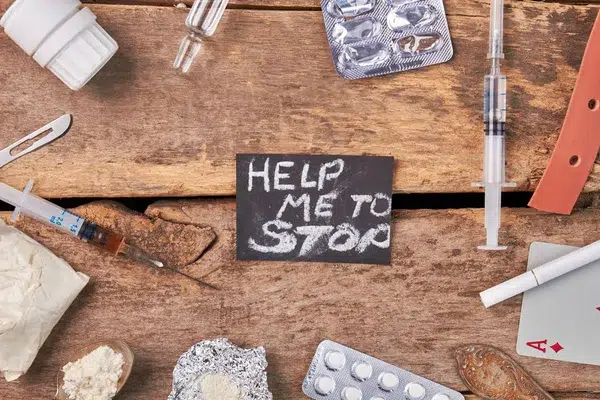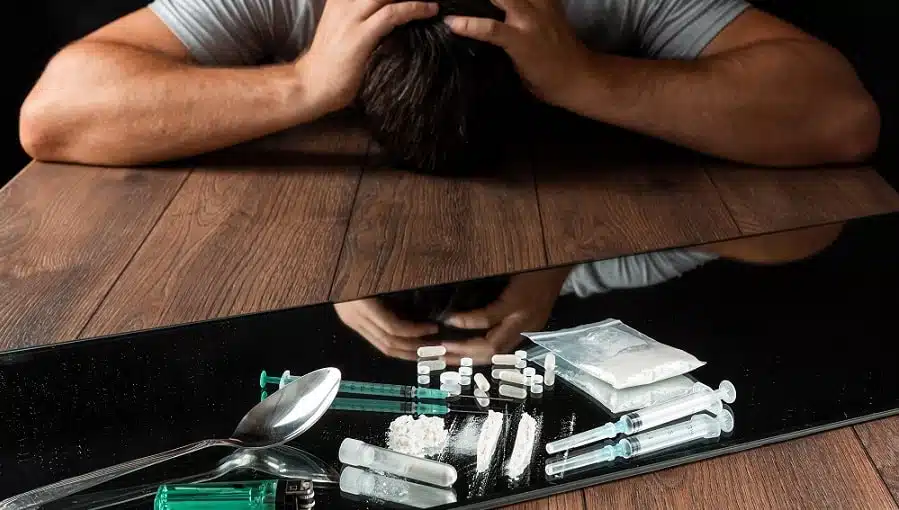
Addiction is a complex and often overwhelming disease that impacts countless lives across the globe.
It doesn’t just affect the individual struggling with substance abuse but also their families, friends, and communities.
Recognizing the need for professional help can be a challenging step, but it’s also one of the most critical moments on the road to recovery.
For many, inpatient rehab provides the structured, intensive care needed to break free from the cycle of addiction.
This guide explores the signs indicating it might be time to consider inpatient rehab and how this treatment can help reclaim your life.
Understanding Inpatient Rehab

Inpatient rehabilitation, often referred to as residential treatment, involves staying at a dedicated facility where individuals receive round-the-clock care.
Unlike outpatient programs, inpatient rehab is immersive, offering a safe and supportive environment free from the triggers and stressors of everyday life.
This type of treatment is particularly beneficial for those with severe addiction or those who have struggled with repeated relapses.
Key Features of Inpatient Rehab:
- 24/7 Medical Supervision: Professionals are available to manage withdrawal symptoms, administer medication, and address any health concerns.
- Comprehensive Therapy: Individual, group, and family therapy sessions are tailored to address the root causes of addiction.
- Structured Routine: Daily schedules minimize downtime and focus on building healthy habits and coping mechanisms.
- Safe Environment: The controlled setting eliminates access to drugs or alcohol, reducing the risk of relapse during treatment.
Inpatient rehab facilities often include amenities such as fitness centers, meditation spaces, and recreational activities to promote holistic healing.
These programs aim to treat not just the addiction but also the underlying physical, emotional, and psychological factors contributing to substance abuse.
How Addiction Affects Your Life
Addiction doesn’t occur in a vacuum. It permeates every facet of life, leading to consequences that grow more severe over time. Understanding the impact of addiction can help you recognize when professional intervention is necessary.
Physical Health
Prolonged substance abuse takes a toll on the body, leading to:
- Organ damage, such as liver failure or heart disease.
- Increased risk of infectious diseases, particularly for those who share needles.
- Deterioration of overall health, including weight loss, malnutrition, and chronic fatigue.
Mental and Emotional Well-Being
Addiction often coexists with mental health disorders, creating a vicious cycle:
- Heightened anxiety, depression, and mood swings.
- Difficulty concentrating or remembering things.
- Feelings of guilt, shame, or hopelessness, which can exacerbate substance use.
Relationships
Substance abuse strains relationships with loved ones, leading to:
- Broken trust and frequent conflicts.
- Isolation from family and friends.
- Loss of meaningful connections, leaving individuals feeling alone.
Professional and Financial Stability
Addiction disrupts daily responsibilities, resulting in:
- Job loss or academic failure.
- Legal issues, such as DUIs or drug possession charges.
- Financial instability due to job loss, fines, or the high cost of sustaining addiction.
Signs That It’s Time to Seek Inpatient Rehab

Deciding to enter inpatient rehab is a deeply personal choice, but certain signs suggest that this level of care is necessary. If you’re experiencing any of the following, it may be time to consider inpatient treatment:
Physical Symptoms of Addiction
- Experiencing withdrawal symptoms, such as nausea, sweating, tremors, or seizures, when not using substances.
- Declining physical health, including frequent illnesses or injuries related to substance use.
- Noticeable changes in appearance, such as significant weight loss, poor hygiene, or skin conditions.
Behavioral Changes
- Neglecting responsibilities at work, school, or home.
- Engaging in risky behaviors, such as driving under the influence or unsafe sexual practices.
- Associating primarily with individuals who enable substance use while avoiding supportive friends and family.
Psychological and Emotional Struggles
- Using substances to cope with stress, trauma, or other emotional pain.
- Persistent feelings of guilt, shame, or worthlessness.
- Increased irritability, aggression, or emotional instability.
Failed Attempts to Quit
- Trying to quit multiple times without success.
- Relapsing after short periods of sobriety due to unresolved triggers or insufficient support.
- Feeling unable to stop using despite knowing the harm it causes.
Co-Occurring Disorders
- Struggling with mental health conditions like PTSD, bipolar disorder, or severe anxiety alongside addiction.
- Using substances to self-medicate for untreated mental health issues.
Why Inpatient Rehab May Be the Right Choice
For many individuals, outpatient programs may not provide the level of support needed for lasting recovery. Inpatient rehab offers a higher level of care, making it ideal for those who:
- Have a history of chronic relapse.
- Live in environments with constant triggers or enabling influences.
- Need medical supervision during detox to manage withdrawal symptoms safely.
- Require a break from their daily lives to focus entirely on recovery.
Inpatient rehab provides the stability and resources needed to build a strong foundation for long-term sobriety. The immersive nature of this treatment allows individuals to develop healthier habits, address unresolved trauma, and prepare for life after rehab.
Find Hope and Healing: Call Us Now!
Take the first step towards a brighter future! If you or a loved one is seeking support for substance abuse, we are here to help. Call us today and let our dedicated team guide you to the right treatment options. Your path to recovery starts now!
- Connect with an expert addiction specialist 24/7/365
- Learn about treatment costs
- Arrange fast access to a treatment program
Request a Call
OR
Make a Call
What to Expect in Inpatient Rehab
1. Comprehensive Assessment
Your journey begins with an intake process where medical and mental health professionals evaluate your needs. During this stage, specialists conduct detailed assessments to understand the severity of your addiction, identify co-occurring mental health disorders, and explore personal factors contributing to substance abuse. This evaluation often includes physical examinations, psychological assessments, and discussions about your medical history, substance use patterns, and social environment. By gathering this information, the treatment team can create a personalized plan designed to address your unique circumstances and set the foundation for a successful recovery journey.
The comprehensive assessment also allows professionals to identify any potential complications, such as medical conditions or risk factors that could arise during detoxification. This initial step is crucial for establishing trust between you and the care team, ensuring you feel understood and supported from the very beginning.
2. Detoxification
For many individuals, detoxification is the first and most challenging step in their recovery. This process involves eliminating harmful substances from your body while managing withdrawal symptoms under medical supervision. Depending on the substance and the severity of addiction, detox can last several days to a week or more. Symptoms such as nausea, anxiety, tremors, or seizures may occur, but trained medical staff are available around the clock to ensure your safety and comfort.
In some cases, medications may be prescribed to alleviate withdrawal symptoms and reduce cravings, making the detox process more manageable. Beyond physical stabilization, the detox phase also prepares you emotionally and mentally for the therapy and counseling sessions that follow. By clearing your body of toxins, you’re better equipped to fully engage in the treatment process and focus on the underlying issues driving your addiction.
3. Therapy and Counseling
Therapeutic interventions are the cornerstone of inpatient rehab, offering individuals the tools and insights needed to achieve lasting recovery. Therapy is typically delivered through a combination of individual, group, and family sessions, each serving a unique purpose in the healing process.
Individual Therapy: One-on-one sessions with a licensed therapist provide a safe space to explore the root causes of addiction. These sessions help uncover past traumas, unresolved emotions, and negative thought patterns that may have fueled substance use. Cognitive-behavioral therapy (CBT) and other evidence-based approaches are commonly used to develop healthier coping mechanisms and build resilience.
Group Therapy: Sharing experiences with peers in a supportive group setting fosters a sense of community and mutual understanding. Group therapy helps individuals realize they are not alone in their struggles and allows them to learn from the successes and challenges of others on similar journeys. It’s an opportunity to practice communication skills, build trust, and receive encouragement from those who understand.
Family Therapy: Addiction often affects the entire family, leading to strained relationships and broken trust. Family therapy aims to repair these dynamics by addressing misunderstandings, improving communication, and creating a supportive home environment. Involving loved ones in the recovery process can strengthen your support network and promote long-term success.
4. Skills Development
Inpatient rehab programs emphasize equipping individuals with practical skills that support sobriety and personal growth. These skills are essential for navigating the challenges of daily life without relying on substances.
Stress Management: Stress is a common trigger for relapse, making it essential to learn healthy ways to cope. Techniques like mindfulness, meditation, and deep breathing exercises help manage stress and promote emotional balance. These practices can be integrated into your daily routine to create a sense of calm and focus.
Relapse Prevention: Understanding your triggers and developing strategies to avoid them is a key component of relapse prevention. This includes identifying high-risk situations, creating an action plan for managing cravings, and learning how to seek help when needed. Through role-playing exercises and real-world scenarios, you’ll gain confidence in your ability to maintain sobriety.
Time Management and Goal-Setting: A structured and purposeful life can reduce the likelihood of relapse. In rehab, you’ll learn how to prioritize responsibilities, set achievable goals, and manage your time effectively. These skills not only support recovery but also enhance your overall quality of life, helping you rebuild a sense of purpose and accomplishment.
5. Aftercare Planning
Completing an inpatient rehab program is a significant achievement, but recovery doesn’t end there. Aftercare planning ensures you have the resources and support needed to maintain your progress and transition back into everyday life. Before leaving the facility, you’ll work closely with your care team to develop a personalized aftercare plan tailored to your needs.
This plan may include outpatient therapy sessions to continue addressing the psychological aspects of addiction. Regular appointments with a therapist or counselor help reinforce the coping strategies you’ve learned and provide ongoing support as you navigate new challenges. Support group meetings, such as Alcoholics Anonymous (AA) or Narcotics Anonymous (NA), offer a sense of community and accountability, connecting you with others who share your commitment to sobriety.
For some individuals, sober living arrangements provide a transitional environment where they can gradually reintegrate into society while maintaining a structured and supportive lifestyle. These homes promote accountability and help individuals practice independence without the immediate pressures of returning to their previous environment. Ultimately, aftercare planning is about creating a roadmap for sustained recovery, empowering you to build a fulfilling and substance-free life.
Addressing Common Concerns About Inpatient Rehab
Myth 1: Rehab is Only for “Rock Bottom” Cases
Truth: Seeking help at any stage of addiction can lead to recovery. Early intervention often prevents more severe consequences.
Myth 2: Rehab is Unaffordable
Truth: Many facilities accept insurance, offer payment plans, or provide financial assistance.
Myth 3: Rehab is a One-Size-Fits-All Solution
Truth: Inpatient programs are highly customizable, with treatment plans tailored to each individual’s needs.
How to Choose the Right Inpatient Rehab Facility
When selecting a treatment center, consider factors such as:
- Accreditation: Ensure the facility meets industry standards for quality care.
- Specialized Programs: Look for options that address co-occurring disorders or specific populations, such as veterans or LGBTQ+ individuals.
- Location and Amenities: Choose a setting that feels comfortable and conducive to healing.
- Cost and Insurance: Verify coverage and explore payment options to make treatment accessible.
Supporting a Loved One in Seeking Help
Encouraging someone to enter rehab can be challenging but life-changing. Tips for supporting a loved one include:
- Educating yourself about addiction and treatment options.
- Choosing the right time and place for a calm, nonjudgmental conversation.
- Expressing concern and offering specific examples of how their behavior has impacted you.
- Providing resources and assistance in finding a suitable rehab facility.
- Setting boundaries to protect your own well-being while maintaining support.
Find Hope and Healing: Call Us Now!
Take the first step towards a brighter future! If you or a loved one is seeking support for substance abuse, we are here to help. Call us today and let our dedicated team guide you to the right treatment options. Your path to recovery starts now!
- Connect with an expert addiction specialist 24/7/365
- Learn about treatment costs
- Arrange fast access to a treatment program
Request a Call
OR
Make a Call
Take the First Step Today
Recognizing the need for help is a courageous and transformative step toward recovery. Inpatient rehab offers the intensive care and support necessary to break free from addiction and rebuild a fulfilling life. If you or someone you love is struggling, don’t wait to seek help.
Contact Addiction Helpline America at (844) 561-0606 today to explore your options and take the first step toward a healthier, brighter future. Recovery is possible, and help is just a phone call away.
FAQ
What are the signs that indicate I need inpatient rehab?
Can I go to inpatient rehab if I have a busy lifestyle?
How do I know if outpatient rehab is enough for me?
What are the benefits of inpatient rehab?
How long does inpatient rehab last?
Our helpline is 100%
free & confidential
If you or someone you care about is struggling with drug or alcohol addiction, we can help you explore your recovery options. Don’t face this challenge alone—seek support from us.
Programs
Resources
Will my insurance
cover addiction
treatment?
We're ready to help
Find the best
drug or alcohol treatment
center
Are you or a loved one struggling with addiction? Call today to speak to a treatment expert.












